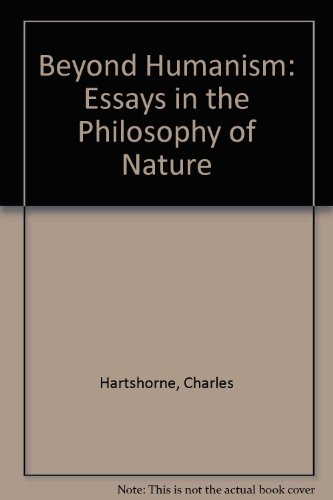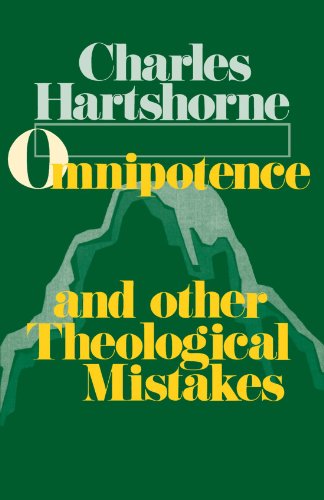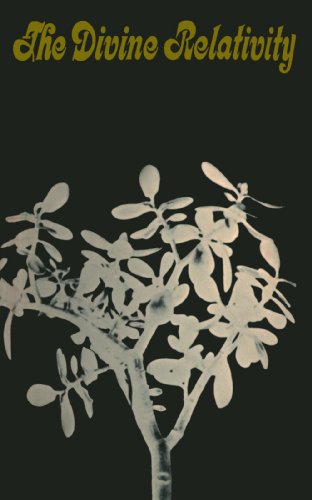Background
Charles Hartshorne was born in Kittanning, Pennsylvania, on June 5, 1897. His father, Francis C. Hartshorne, was an Episcopal clergyman and his mother, Marguerite Haughton, was the daughter of an Episcopal clergyman.



( Charles Hartshorne is arguably the most important livin...)
Charles Hartshorne is arguably the most important living metaphysician and one of the most eminent figures of American philosophy in the twentieth century. He is internationally known for his contributions to the philosophy of creativity and for his distinctive brand of process philosophy and theology. For more than seven decades Hartshorne has presented his theses ever more persuasively, comparing and contrasting them in illuminating fashion with those of major historical figures and movements, from Plato to Kant to Popper. Central to his outlook are fresh interpretations of such notions as God, freedom, chance, creativity, the primacy of aesthetic meaning, affective tone, the social character of experience, sympathy as self-creative, relatedness and asymmetry, feeling and feeling of feeling, and generalized causal possibility with a place for probabilities and open possibilities. This collection of Charles Hartshorne's writings -- many never before published -- is an indispensible introduction to his rich and indelible contribution to contemporary philosophy. It covers the extraordinary range of Hartshorne's thought, including his reflections on the history of philosophy, philosophical psychology, philosophy of science, epistemology, ethics, aesthetics, literature, ornithology, and, above all, theology and metaphysics.
http://www.amazon.com/gp/product/0812693248/?tag=2022091-20

( In blunt outline the answer to the question, how do we...)
In blunt outline the answer to the question, how do we rationally know God, is this: we find Him in all of our fundamental meanings, and if we try to purify them of involvement with deity we find that nothing unequivocal is left. All begins to dissolve in paradox. Unless we are forced to conceive God Himself in equally paradoxical termswhich might be called the question of philosophywe are bound to stand by our meanings, God and all. This book, one of the handful of truly pathbreaking works in twentieth-century philosophical theology, presents Charles Hartshornes persuasive rehabilitation of Anselms Ontological Argument, recast in neoclassical form as the Modal Proof, along with applications of Hartshornes method to a variety of issues in contemporary metaphysical and religious thinking. Charles Hartshorne authored many works, including A Natural Theology for Our Time and Anselms Discovery: A Re-examination of the Ontological Argument for Gods Existence.
http://www.amazon.com/gp/product/0875480373/?tag=2022091-20

(In the three decades since it was first published, Charle...)
In the three decades since it was first published, Charles Hartshorne's Beyond Humanism has come to be regarded as a classic in the study of humanism and nature. The volume includes: Part One: HUMANISM AND HUMAN NEEDS-God or Nature-Humanism as Disintegration-Dewey's Philosophy of Religion-Other Humanist Philosophies -Russia and Marxian Humanism-Freud's View of Religion-Historic Forms of HumanismPart Two: NATURE-The Cosmic Variables-Order in a Creative Universe -Indeterminism in Psychology and Ethics-Mind and Matter-Mind and Body: Organic Sympathy-Russell on Causality-Santayana on Matter-Mead and Alexander on Time-Logical Positivism and the Method of Philosophy -Croce, Heidegger, and Hartmann-Conclusion: The Historic Role of Humanism
http://www.amazon.com/gp/product/0844651168/?tag=2022091-20

(This book presents Hartshorne's philosophical theology br...)
This book presents Hartshorne's philosophical theology briefly, simply, and vividly. Throughout the centuries some of the world's most brilliant philosophers and theologians have held and perpetuated six beliefs that give the word God a meaning untrue to its import in sacred writings or in active religious devotion:1. God is absolutely perfect and therefore unchangeable,2. omnipotence,3. omniscience,4. God's unsympathetic goodness,5. immortality as a career after death,6. revelation as indefallible. Charles Hartshorne deals with these six theological mistakes from the standpoint of his process theology. Hartshorne says, "The book is unacademic in so far as I am capable of being that." Only a master like Hartshorne could present such sophisticated ideas so simply. This book offers an opinion for religious belief not heretofore available to lay people.
http://www.amazon.com/gp/product/0873957717/?tag=2022091-20

( Charles Hartshorne has set himself the task of formulat...)
Charles Hartshorne has set himself the task of formulating the idea of deity "to preserve perhaps even increase, its religious value, while yet avoiding the contradictions which seem inseparable from the idea of customarily defined." This is a brilliant attempt to redefine problems that have long challenged the Western world in its search for understanding both God and man. The compact, closely reasoned book employs a skill in logic reminiscent of scholasticism at its best to refute traditional notions, scholastic and otherwise, of divine absoluteness, and to expound a conception of God which is both free of contradiction and religiously adequate. The position taken is described by Professor Hartshorne as surrelativism, or panentheism, and these terms indicate the two major emphases of the volume .He who follows its precise logic with the alertness it demands will have a clarifying and enriching experience.S. Paul Schiling, Journal of Bible and Religion In what respects is God absolute and in what respects relative? Or is it meaningless to say that he is both? In a rigorously analytical study Professor Hartshorne explains why he thinks both statements are necessary .One comes from this book with new confidence in the ability of philosophy to attack religious problems and, through careful analysis, to reveal what as alone conceivable must be true.J.S. Bixler, Review of Religion Hartshornes work is a major achievement in religious thought because it strives to clear away errors that have been insuperable obstacles to religious search.Henry N. Wieman, The Philosophical Review This book is not merely theoretical, as might be supposed; it has its practical application to the larger social issues of our time, including the problem of democracy.Jay William Hudson, Christian Register
http://www.amazon.com/gp/product/0300028806/?tag=2022091-20

(A vigorous and wide-ranging defense of Hartshornes neoc...)
A vigorous and wide-ranging defense of Hartshornes neoclassical metaphysics of creative freedom. Charles Hartshorne, one of the premier metaphysicians of the twentieth century, surmised that Creative Experiencing: A Philosophy of Freedom made his contribution to technical philosophy essentially complete. Found among his papers, this book combines five chapters published here for the first time with revisions and expansions of previously published material. Hartshorne articulates and defends his neoclassical metaphysics as an enterprise related to but independent of empirical science, addressing a variety of topics, including the problem of other minds (including nonhuman ones), the competencies of science, the nature of God, the meaning of modal terms, the ontological status of universals, and the metaphysical grounding of political freedom. While Hartshorne is widely known as a process philosopher, Creative Experiencing also shows him in dialogue with the wider currents of both analytic philosophy and phenomenology. The book includes his clearest account of his appropriation of phenomenology, the most succinct presentation of his analysis of times asymmetry and its relation to causality, and his fullest statement concerning the meaning of future tense statements. This book truly is a testament to Hartshornes metaphysical genius I would recommend this book to those looking to expand their knowledge of process philosophy vis-à-vis studies in Whitehead, or more generally to anyone simply looking to master the essentials of Hartshorne. Leon Niemoczynski, American Journal of Theology and Philosophy Although this book is addressed to other philosophers, it is written in clear and lucid prose, accessible to non-technical readers. Literature and Theology One does not have to be a follower of Hartshorne, nor even a process philosopher, to benefit from reading this last metaphysical testament by one of Americas most distinguished thinkers. George Allan, author of Higher Education in the Making: Pragmatism, Whitehead, and the Canon
http://www.amazon.com/gp/product/1438436661/?tag=2022091-20
Charles Hartshorne was born in Kittanning, Pennsylvania, on June 5, 1897. His father, Francis C. Hartshorne, was an Episcopal clergyman and his mother, Marguerite Haughton, was the daughter of an Episcopal clergyman.
A serious youth given to much reading and reflection, he entered Haverford College in 1915. With the advent of World War I he became a hospital orderly in Normandy, France, and, as with many other participants in the war, the enormous toll in human lives and injury deeply upset him. Hartshorne returned from the war and entered Harvard, majoring in philosophy. He completed his undergraduate work in 1921 and in quick succession received the doctor's degree in philosophy in 1923. There is a direct line between the philosophical system Hartshorne developed in his formative years and his mature thinking. William Ernest Hocking's metaphysics, Clarence I. Lewis's idealism, Ralph Barton Perry's ethics: the teachers and the courses at Harvard all influenced him. Fellowships allowed him to spend two years in Europe where he studied under Edmund Husserl and Martin Heidegger, leading exponents of phenomenology and existentialism, respectively.
Returning to Harvard in 1925 he began the monumental task, along with Paul Weiss, of editing the papers of Charles Sanders Peirce, the founder of pragmatism. This difficult task resulted in the publication of six volumes of Peirce's writings. At the same time Hartshorne worked as assistant to Alfred North Whitehead, who along with Peirce and Henri Bergson strongly influenced Hartshorne's thinking. It was Whitehead who was considered his intellectual mentor. Hartshorne combined a capacity for brilliant philosophical analysis with an outgoing social nature. His prolific and distinguished publishing career began in 1929, and his first book, The Philosophy and Psychology of Sensation, was published in 1934. He early on developed a pattern of lecturing and writing, both of which continued within the framework of a teaching career at Chicago (1928 - 1955), Emory (1955 - 1962), and the University of Texas (1962 to 19806), along with visiting professorships at, among other universities, Stanford, the Sorbonne (France), Kyoto (Japan), and Goethe (Germany). Hartshore retired from teaching at 80 years of age, and became Professor Emeritus at the University of Texas at Austin. He also continued his active interest in bird song and published a book on the subject in 1973. He lived in Austin, Texas, and maintained an office on the university campus there. The University celebrated his one-hundredth birthday with him in 1997. Charles Hartshorne died on October 9, 2000, he was 103 years old.
( Charles Hartshorne has set himself the task of formulat...)
( In blunt outline the answer to the question, how do we...)
(In the three decades since it was first published, Charle...)
( Charles Hartshorne is arguably the most important livin...)
(A vigorous and wide-ranging defense of Hartshornes neoc...)
(This book presents Hartshorne's philosophical theology br...)
(Transcripts of four Morse lectures givenat Union Theologi...)
He made a significant contribution to theology's never-ending quest to understand the nature of God. According to Hartshorne's "neo-classical theism, " God changes along with temporal creation and is enriched by it. All reality moves toward the future, but this future has no ending, just as the past had no beginning. The God of process thought shares creation in a most intimate way with creatures, for divinity moves from present to future in the closest of relationships with the cosmos in joy and sorrow, not in distant all-knowing omnipotence or static perfection. Hartshorne's theological reflections picture a God not caught up in solitary splendor, a notion prevelant in Christian thinking. This God is incapable of being truly loving. In one of his important works, Reality as Social Process, Hartshorne stated: "For to love a being yet be absolutely independent of and unaffected by its welfare or suffering seems nonsense. " In Hartshorne's view, God-with-us, in the tragedies made possible or inevitable by freedom, should receive more attention from theologians. Hartshorne summarized his own religious credo, a belief worked out in countless books, essays, and lectures: "I definitely believe in God, in divine love as the key to existence, in love for God as (ideally) the all-in-all of our motivation, and in love for fellow creatures as valuable and important, judged by the same principle of value-to-God as we should judge ourselves by" (Omnipotence and Other Theological Mistakes). This affirmation by a maker of modern philosophy gives contemporary society pause to think of how it understands itself religiously as well as secularly since we are all believers, a people which must come to terms with meaning and ultimacy even if that belief does not assent to divinity as traditionally understood. Charles Hartshorne was a most prolific writer on theological and philosophical subjects throughout his career.
Quotations:
"[W]e live in a century in which everything has been said. The challenge today is to learn which statements to deny. "
"God thus excludes the world; he is only its cause; in no sense is he effect, of himself or anything else. Pantheism (better, " pandeism , " for again it is not really the theos that is described) means that God is the integral totality of ordinary cause-effects, and that there, is no super-cause independent of ordinary causes and effects. "
"The secret of my success is longevity. "
"Panentheistic doctrine contains all of deism and pandeism except their arbitrary negations. "
"Speculative Philosophy is the endeavour to frame a coherent, logical, necessary system of general ideas in terms of which every element of our experience can be interpreted. By this notion of 'interpretation' I mean that everything of which we are conscious, as enjoyed, perceived, willed, or thought, shall have the character of a particular instance of the general scheme. "
"I think my great book is Born to Sing: An Interpretation and World Survey of Bird Song. "
"Do you remember which way I was heading?"
"All things, in all their aspects, consist exclusively of 'souls', that is, of various kinds of subjects, or units of experiencing, with their qualifications, relations, and groupings, or communities. "
In The Brothers Karamazov, Fyodor Dostoyevsky described two paths taken by young men in the pursuit of truth. The easier path involved immediate action, even to the point of sacrificing one's life. The more difficult path demanded years of tedious study which multiplied tenfold the ability to serve the truth. In Charles Hartshorne, one finds a person who chose the second path. He was the contemporary scholar who provided direction for the human community's search for self-understanding. Hartshorne was a pre-eminent philosopher and had a decided influence on 20th-century American thinking for several reasons. He was a shaper of the idealist tradition through his seminal works in process philosophy and theology, wherein all reality, God included, was seen in a state of eternal change and becoming. This process philosophy sharply challenged many of the fundamental ideas about the universe and God that had been the cornerstone of Western philosophy and theology. Hartshorne developed a metaphysics-that is, a theory of meaning whereby we understand being, the universe, humans, and God. He thus provided an anchor for philosophy as it sought to gain stability in a period reacting to linguistic analysis and logical positivism. He also offered a challenge to the rapidly developing disciplines in applied ethics (e. g. , business, engineering, and medical ethics) to press their arguments to more fundamental levels of philosophical and theological discourse. He had the ability to translate complex abstractions into language which made his ideas available to the non-academic reader.
In 1928, after accepting a teaching position at the University of Chicago, he married Dorothy Eleanore Cooper. They had a daughter, Emily Lawrence.
